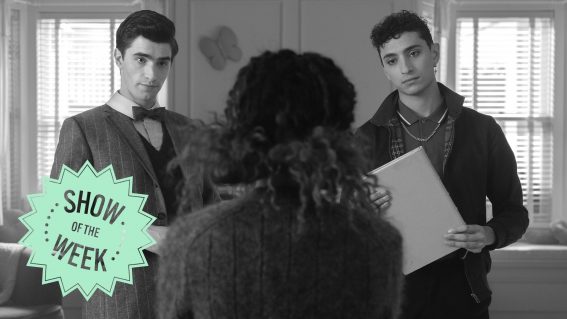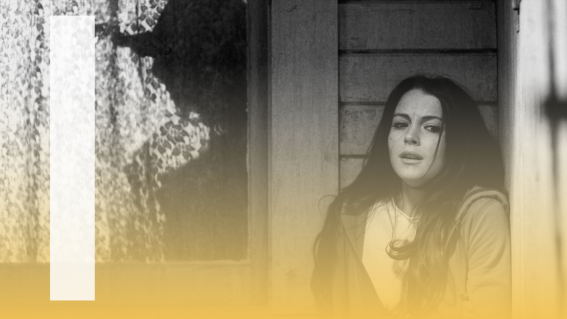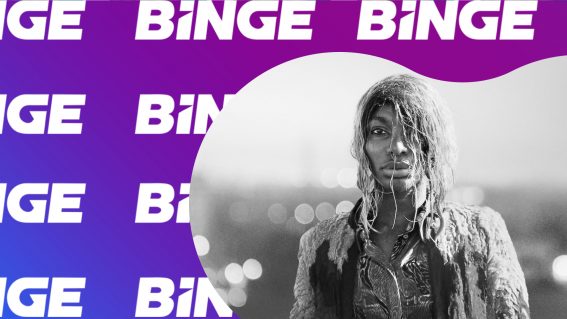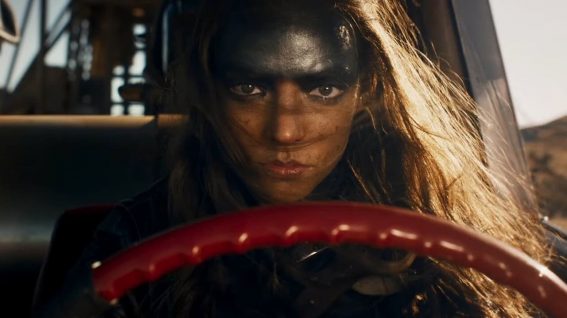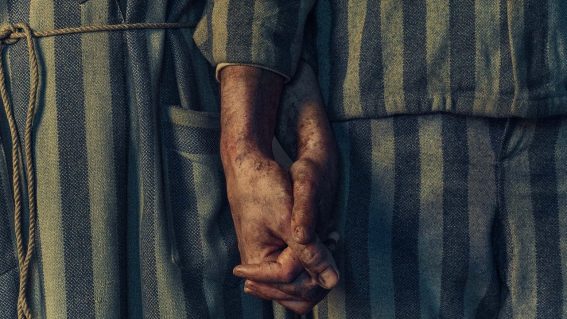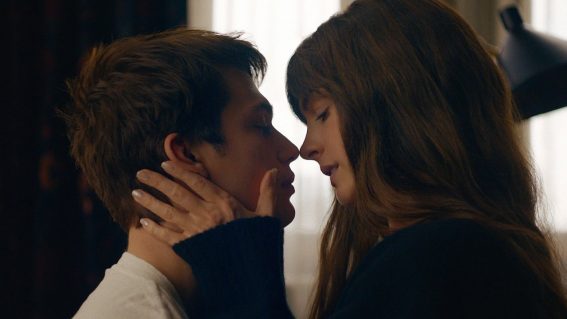Palm Royale doesn’t have enough to say about its groovy, 60s beach club setting
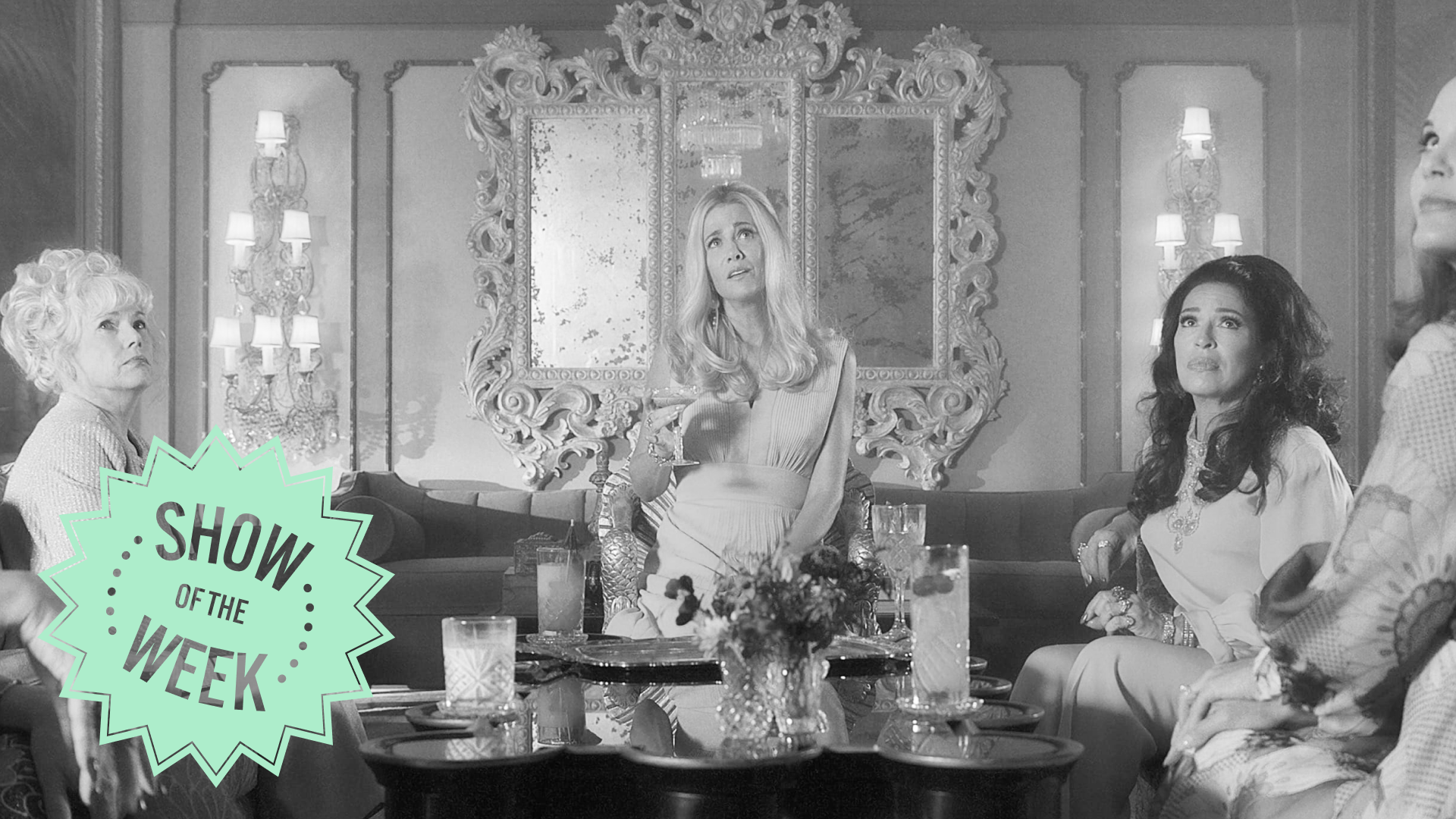
Clarisse Loughrey’s Show of the Week column, published every Friday, spotlights a new show to watch or skip. This week: retro dramedy Palm Royale.
Now that the desire to watch filthy rich women snipe at each other is largely satisfied by reality shows with the word “housewives” in the title, scripted television doesn’t seem to indulge so much in pure, unfiltered aspirational wealth. Of course, there are plenty of shows about the rich—too many, in fact. But they’ve made sure they have a conscience now. Succession and White Lotus can have their gold-leafed cake and eat it, too, by marketing themselves with the aesthetics of power, all while blowing poison-tipped darts of misfortune into its characters’ necks.
Certainly, schadenfreude is good and popular business in television these days, but the shift in how we depict the wealthy on screen has had an odd effect on shows like Apple TV+’s Palm Royale. Set in 1969, it’s about women in palazzo pants and cat eyeliner locking martini glasses in the race to become Palm Beach’s queen bee.
It should function as a direct successor to Desperate Housewives or Dynasty, but fumbles in the way it so casually gestures towards the talking points of capitalism, feminism, and the American psyche. It wants you to think it’s about something, without really having anything to say—and if a show is this intent on cutting away repeatedly to Richard Nixon’s old presidential speeches, there should really be a reason for it.
Based on the novel Mr & Mrs American Pie by Juliet McDaniel, and created by Abe Sylvia, Palm Royale follows Maxine Simmons (Kristen Wiig), a sunshine and Doris Day-type who’s so desperate to become a member of the titular Palm Royale, “the most exclusive club in the world”, that she’s willing to literally clamber over its walls. She parks herself poolside with a Grasshopper cocktail. She’s a nervy interloper ready to leap into conversation with monied dames like Evelyn Rollins (Allison Janney), Dinah Donahue (Leslie Bibb), and Raquel (Claudia Ferri).
Yet, Maxine isn’t quite the disrupter we’ve come to expect from these kinds of stories. She’s no Jay Gatsby-esque self-mythologiser but someone with a reason to be here, and a husband, Douglas (Josh Lucas), with a stake in the local society. That leaves us with a character who talks like a true outsider—”all I wanted to be was a somebody in this world”—but whose clarity of vision seems to grow weaker as Palm Royale’s plot ties itself up in smaller and smaller knots.
The series is stuffed full of secret identities, torrid affairs, theft, fraud, the whiff of murder, and buckets full of quaaludes. It’s delightful to watch, with Alix Friedberg’s costumes awash with Lilly Pulitzer and Pucci, all psychedelic caftans and bug-eyed white sunglasses. The cast—Wiig, Janney, and Bibb especially—are on fine form, putting torture to those passive-aggressive niceties until they see blood, while swanning around what amounts to a Stepford Wives, Beyond the Valley of the Dolls LSD hallucination.
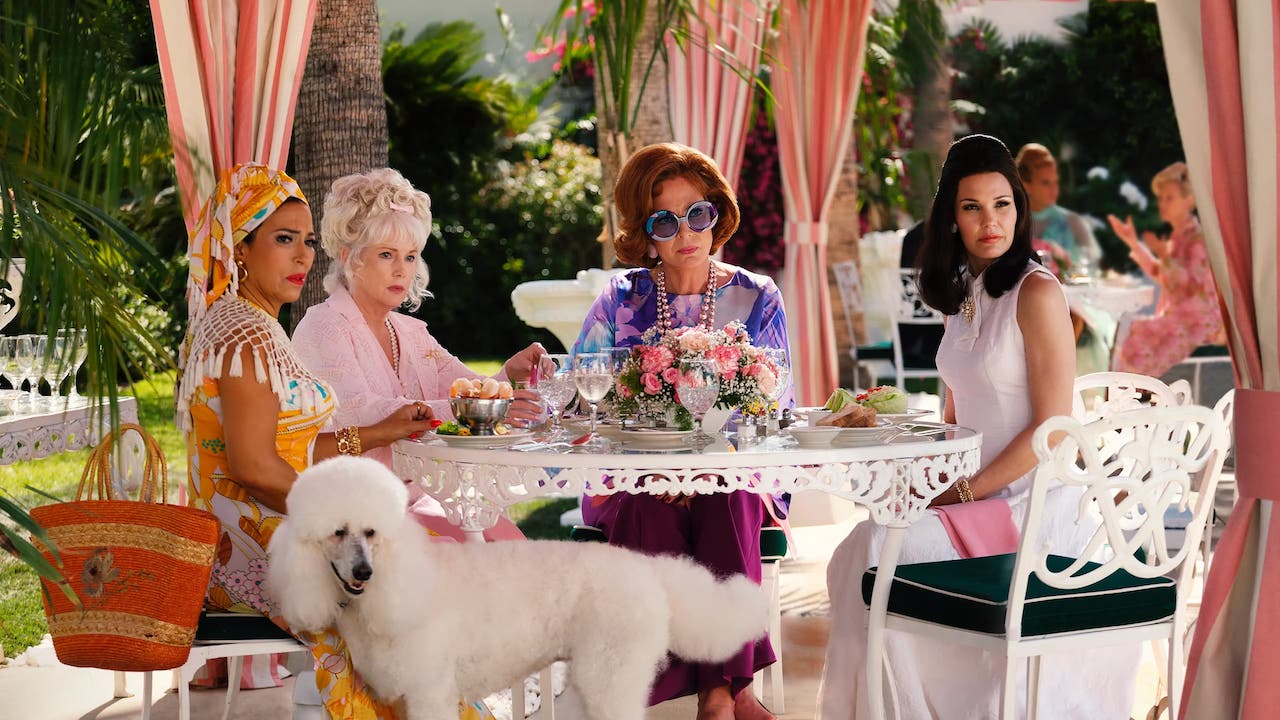
Wiig, especially, has one of the best wide-eyed looks of panic in the business; any time one of the other socialites catches her in a trap, you can practically see her brain buffering. She gets even better over the course of the series, as, around the three-quarter mark, it dips into some more straightforwardly absurd territory involving whales and a possible assassination.
But Palm Royale’s gleefulness isn’t sharp-toothed enough to work as actual satire, and it’s hard to know what to do with the series’s fully sympathetic characters, radical feminist Linda (Laura Dern) and former Korean War vet turned bartender Robert (Ricky Martin). Linda’s sisterhood circle of activists talk about abortion and civil rights, and proclaim that Vietnam is “an endorsement of state-sponsored male chauvinism”. They spout catchphrases that aren’t pointed enough to be funny but, equally, offer little to no insight into whether Maxine’s ambitions make her a tool of the patriarchy or a woman in control of her own destiny.
Palm Royale has its pleasures, but when you get to a dolled-up Wiig kick-stepping to Peggy Lee’s “Is That All There Is”, it’s hard not to share in the disappointment.



